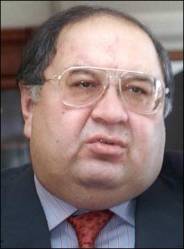- Arsenal track Akturkoglu ahead of summer move
- Arsenal keen on signing Valencia midfielder Javi Guerra
- Arsenal battling with Liverpool to sign Igor Paixao
- Arsenal remain keen on signing Ajax star Jorrel Hato
- Arsenal battling with PL rivals to sign Eberechi Eze
- Arsenal plan summer move for Boubacar Kamara
- Player ratings: Arsenal 3-0 Real Madrid: Declan Rice stuns champions
- Arsenal ‘preparing’ to submit formal bid to sign Arda Guler
- Arsenal battling with Man Utd to sign Matheus Cunha
- Confirmed line-ups: Arsenal vs Real Madrid – Saka & Martinelli start
The Truth About Arsenal’s Financial State

Our group turnover, being the money the club has generated before expenses, has risen significantly over last season (£90m), though this is mostly due to revenue generated from completed sales involving the Highbury property. Increased matchday revenue, due to progressing to progessing to the semifinals of both the Champions League and the FA Cup, went from £94.6m last season to £100.1m this season.
The club is generating over £3m in revenue each matchday. As you can see our profits before tax were £45m and after tax came to £35.2m. This is a very healthy increase of £9.5m over last season. Here is how our turnover is broken down between the football and property sides of the company:

As far as wages go, our wage bill now stands at £104m, up from £101.3m last year. This represents 46% of our football revenues. It also puts us near the very top of the Premier League in regards to wage bills. Chelsea, obviously, lead the way with a wage bill of £172m while United come second with £121m. Liverpool remains in the low £90m range.
Contrary to propaganda, Arsenal pay far better than competitive wages. It is only that instead of blowing that money on new signings, they handsomely reward those current players that have already shown their loyalty and commitment to the club.
The other question regarding our finances is, of course, the debt. So let’s see how that breaks down:

As you can see, for a club with £99.6m in cash reserves and a profit of £35m, the money needed to service the debts is easily handled by the club and in no way hampers or limits the club’s overall finances or operations.
Contrary to pundits and disgruntled fans who continue to say “Arsenal is so deep in debt because of their stadium that they can’t buy any players,” you can see that is just not the case. Arsenal have money on hand and are in no way hampered by the stadium loan since it generates far more revenue per year than the amount it takes to service the debt. In fact, the reality is the opposite. Arsenal’s current and future financial situation have been greatly enhanced by the building of the stadium.
Of course, this may frustrate some people even more to know that Arsene has cash available and yet “refuses” to spend. I would argue with this characterization. Just because the manager doesn’t buy as many players as some supporters would like, it doesn’t mean he “refuses” to spend.
In the last sixteen months, Arsenal have brought in Samir Nasri, Aaron Ramsey, Thomas Vermaelen, and Andrei Arshavin. These are significant transfers of players of real quality, and, while some may wish for more in that vein, you cannot deny that Arsene has brought in players.
ARSENAL SHARES

Of course, even if Kroenke reaches 30%, the club and shareholders are not required to sell. I believe that Kroenke has no interest in an Uzbek-style takeover in the club and, while I know many are not happy about an American being such a big shareholder, he is by far the lesser of two evils and poses no real threat to the club.
The very positive financial reports really cast a dim light on Red & White’s tactics over the summer and the motives behind their proposed rights issue. Red & White would have people believe, and it seems to have worked on the pundits and some supporters, that Arsenal cannot compete financially with other clubs at all.
As you can see from the numbers above, this is absolutely not true. Arsenal are the third-richest club in the world and as the stadium and property debt continues to decrease so will our profits increase by the same amount.
The fact is that Red & White have tried to mislead the supporters to help their own cause. Considering the characters involved, this should come as no surprise. Whether or not Arsene spends the money, the fact remains that the money is there if necessary, as the Board, Arsene, and Ivan Gazidis have said all along.
Of course, this won’t stop those prone to conspiracy theories, but, for those of us with half a brain, there is no need to listen to Red & White or the pundits regarding Arsenal’s financial situation, when we can see it for ourselves.
NOTE: For previous takes on the Red & White situation see “Gooners Stalked By Delusional Fat Guy” and “The Good and Bad Legacy of David Dein.” Also, for the view of the Arsenal’s Supporter Trust, check out Arseblog’s interview with Tim Payton on this week’s Arsecast.
[digg=http://digg.com/soccer/The_Truth_About_Arsenal_s_Financial_State]








Pingback: The Truth About Arsenal's Financial State « Arsenal Station
Pingback: Top Posts « WordPress.com